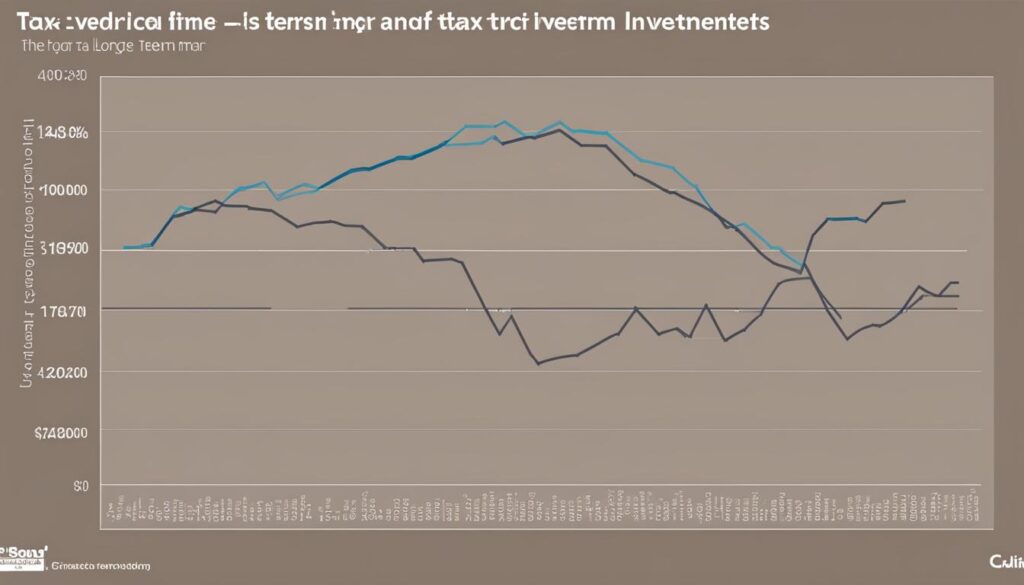As a real estate investor, minimizing your tax liability is essential for maximizing returns on your investments. One area that often slips under the radar is recapture tax, which can significantly impact your investment return upon the sale of your rental property. In this guide, we will provide insights on how to avoid recapture tax, offering expert tax planning to avoid recapture and detailing practical capital gains tax strategies that align with your investment goals.
Arming yourself with accurate investor tax guidance and exploring proven methods for minimizing the recapture tax impact on your portfolio can significantly contribute to your real estate success. Read on to discover strategies for investment tax return optimization and secure your financial future in the competitive world of real estate investing.
Understanding Recapture Tax and Its Impact on Investment Returns
Recapture tax, specifically depreciation recapture tax, is a critical factor affecting the profits of a rental property sale. The Internal Revenue Service (IRS) considers the difference between the property’s sale value and its depreciated value as recovered income, which becomes subject to recapture tax. This tax can heavily impact investment returns and must be factored into real estate profit taxation strategies.
When a property serves as a rental, depreciation deductions are taken annually, allowing a reduction in an owner’s taxable income. However, upon the sale of the property, these deductions can lead to a recapture tax rate of up to 25%. The tax rate depends on the individual’s income level and can range from 0% to 37% based on their tax bracket and the duration of property ownership.
It is essential for investors to understand the recapture tax implications and plan accordingly to minimize the impact of depreciation recapture tax on their investment returns. Being aware of the different tax rates and how they apply to individual circumstances will enable property owners to make informed decisions when selling rental properties, ultimately optimizing their financial outcomes.
The complexities of recapture tax and its effects on investment return impact make it crucial for real estate investors to stay informed and adapt their strategies in response to changing tax laws and market conditions. By doing so, they can maximize their real estate profit taxation benefits and preserve their investment returns in the long run.
The Role of Capital Gains in Real Estate Investment

Capital gains tax plays a crucial role in determining the profitability of real estate investment, especially when it comes to rental properties. As the value of a rental property increases over time, so does the potential tax liability associated with its sale. Upon selling a rental property that has appreciated in value, the profits are subject to capital gains tax, with rates depending on the investor’s income bracket. The current rates are 15% for those within a specific income range and a higher 20% rate for those earning above that threshold.
This tax liability is an essential consideration for investors when calculating returns on their rental property profits. It also plays a significant role in shaping their long-term financial planning and investment strategies. By understanding the implications of capital gains tax on real estate investments, savvy investors can develop strategies to minimize their tax burden and enhance their overall investment returns.
One crucial factor to consider for long-term financial planning is the holding period of a property. Capital gains tax rates vary depending on whether the investments are classified as short-term or long-term holdings. Short-term capital gains, realized on investments held for one year or less, are typically taxed at the investor’s ordinary income tax rate. In contrast, long-term capital gains, earned on investments held for more than one year, are taxed at the aforementioned preferential rates of either 15% or 20%, depending on the income bracket.
Given the significant impact that capital gains tax can have on rental property profits, it’s essential for investors to consider the potential liabilities associated with the tax and develop strategies to minimize its effects on their investment returns. Some approaches to consider include tax-loss harvesting, 1031 exchanges, and strategic timing of property sales. By understanding and adjusting their investment strategies to account for capital gains tax implications, real estate investors can optimize their portfolio’s performance and secure a robust financial future.
Strategic Tax Planning to Mitigate Recapture Tax Liability

Effective strategic tax planning plays a vital role in mitigating recapture tax liability when selling rental properties. This involves the implementation of various techniques aimed at reducing tax implications on investment gains. Some of these techniques include identifying and using investment losses to offset gains, conducting a like-kind 1031 exchange to defer taxes, and leveraging the primary residence exclusion under Section 121 to qualify for tax exemptions.
Understanding the intricacies of the Internal Revenue Service (IRS) guidelines is paramount in employing these strategies successfully. Proper timing is also crucial as it ensures that the strategies are well-planned and executed to optimize tax savings.
One effective approach in strategic tax planning is to consult a tax advisory for investors to gather expert advice on mitigating recapture tax. This ensures that informed decisions are made and investment gains are preserved while significantly reducing tax liability. Qualified tax advisors have extensive knowledge of tax laws and regulations and can help tailor a tax plan that aligns with an investor’s unique needs and financial goals.
In addition to proficient tax advisory services, investors should also educate themselves on various tax-saving strategies. This knowledge empowers them to make informed decisions that minimize recapture tax liability, thereby increasing their overall return on investment. Real estate investors should consider investing time and resources in understanding tax laws, seeking professional guidance when necessary, and mastering the art of strategic tax planning to ensure the lucrative growth and protection of their property portfolio.

One of the most effective ways for real estate investors to minimize their tax liabilities is by leveraging recapture tax exemptions such as the primary residence exclusion. By understanding and meeting specific qualifications, investors can potentially erase capital gains tax and depreciation recapture liabilities.
Primary Residence Exclusion Under Section 121
The Internal Revenue Service (IRS) allows for a significant exemption from capital gains tax for selling primary residences. Under the Section 121 exemption, property owners can exclude up to $250,000 in capital gains if filing single, or $500,000 if married filing jointly. To qualify for this exemption, homeowners must meet the following requirements:
- They must have owned the property for at least two years during the five-year period ending on the date of the sale.
- The property was their main home for at least two years during the same five-year period, which does not need to be consecutive.
- They have not excluded capital gains from a prior home sale within two years of the current sale.
Investors can take advantage of this primary residence exclusion by strategically converting a rental property to a primary residence. By meeting the eligibility criteria under Section 121, they may significantly reduce or even eliminate capital gains tax and depreciation recapture liabilities.
Converting a rental property to a primary residence is not a decision to be taken lightly, as it involves several considerations and potential drawbacks, such as changes in tax deductions and limitations on principal residence debt. However, when executed correctly and in compliance with IRS guidelines, this strategy can offer a substantial tax-saving opportunity for real estate investors.
As tax laws and regulations change and evolve, investors must stay informed and up-to-date on the latest guidelines and requirements to maximize their tax savings. By diligently navigating the qualifications for recapture tax exemptions such as the Section 121 primary residence exclusion, real estate investors can effectively optimize their tax planning and investment strategies.
Utilizing 1031 Exchanges for Tax Deferral

A 1031 exchange, also known as a like-kind exchange, is an essential tax deferral tool for savvy real estate investors. By employing this strategy, investors can sell a property and use the proceeds to acquire another property of similar value without triggering immediate capital gains tax liabilities. By doing so, they preserve more capital for reinvestment and defer recapture taxes.
To successfully execute a 1031 exchange, certain requirements must be met. First and foremost, the properties being exchanged must be similar in nature or “like-kind.” There are various interpretations of the term, but generally, real estate properties held for business or investment purposes qualify for this treatment.
Next, the investor faces strict timing constraints. Within 45 days of selling their relinquished property, they must identify one or more potential replacement properties. This identification can be made in writing or presented to a qualified intermediary. After making the identification, the investor has 180 days from the date of the initial sale to complete the purchase of the replacement property. These timing rules are not flexible, so meticulously following these deadlines is critical to securing tax deferral through a 1031 exchange.
Ultimately, a 1031 exchange can be an invaluable instrument for investors to defer recapture taxes and maintain more capital to reinvest in real estate, maximizing their investment returns. However, given the various timing considerations and qualification rules, it is advisable to seek professional assistance when planning and executing a 1031 exchange to ensure compliance and, consequently, a successful transaction.
Converting Rental Properties to Primary Residences to Avoid Recapture Tax

Transitioning a rental property to a primary residence can be a highly effective real estate tax strategy for avoiding recapture tax. By utilizing Section 121, investors can exclude a substantial portion of the capital gains from taxable income, drastically reducing their tax liabilities. To take advantage of these primary residence tax benefits, investors must establish and maintain their status as a primary residence for a specified period.
The exclusion amount under Section 121 varies based on marital status and the duration of residency in the property. Single taxpayers can exclude up to $250,000 of capital gains, while married couples filing jointly can exclude up to $500,000. To qualify for this substantial tax break, the property must have been used as the owner’s primary residence for at least two years within the five-year period before the sale. These years do not have to be consecutive, providing a degree of flexibility for investors.
Converting a rental property into a primary residence does come with some requirements. Investors must not only establish residency but also demonstrate that they are genuinely using the property as their primary home. Maintaining records of utility bills, voter registration, driver’s license address changes, and other documents can help validate primary residence status during the conversion process.
When successfully implemented, converting a rental property into a primary residence can offer a lawful method to sidestep hefty recapture taxes and capitalize on investment returns. To make the most of this strategy, investors should consult with a tax professional who specializes in real estate tax planning. They can help navigate the complex regulations surrounding the conversion process and ensure that all requirements are met to qualify for the maximum tax benefits under Section 121.
Offsetting Gains with Losses: Tax-Loss Harvesting Explained

Tax-loss harvesting is a strategic approach employed by investors to balance capital gains realized from the sale of profitable investments, such as rental real estate, against losses from other underperforming investments. This technique utilizes the natural fluctuations of the market to minimize an investor’s overall tax burden. By selling assets experiencing losses in the same tax year as a profitable property sale, the taxable capital gains can be significantly reduced, lessening the financial impact on the investor.
Executing a successful tax-loss harvesting strategy requires a thorough understanding of market conditions and careful monitoring of the investor’s financial holdings. Documenting investment results throughout the year and noting the performance of various assets is essential in determining when to employ tax-loss harvesting. Market factors such as interest rate changes, economic fluctuations, and industry developments should be taken into account when making critical decisions on investment portfolio adjustments.
It is essential to keep in mind that tax-loss harvesting should not be the sole driving factor behind investment decisions. Investors need to prioritize their overall financial goals and objectives, using tax reduction techniques such as tax-loss harvesting only when it aligns with the broader investment strategy. The ultimate goal should always be to maximize investment returns and minimize risks, with tax-saving strategies serving as a means to those ends.
In conclusion, tax-loss harvesting is a valuable method for offsetting capital gains and reducing the tax burden associated with profitable investments. By strategically selling loss-incurring assets in the same year as realizing gains from rental properties or other profitable investments, investors can take advantage of market fluctuations while adhering to tax regulations. Incorporating tax-loss harvesting into a financial strategy can effectively safeguard an investor’s wealth while working towards long-term financial goals.
Ensuring Proper Documentation for Recapture Tax Minimization

Accurate and complete documentation for tax minimization is essential for minimizing recapture tax. It includes keeping track of all depreciation claims, maintenance and improvement records, and transaction costs related to the property sale. These records substantiate the deductions and exemptions claimed, such as realtor commissions, title fees, and specific home improvements, and may influence recapture tax calculations.
Proper documentation is crucial for tax advisors to provide precise guidance and for ensuring compliance with IRS regulations. Maintaining recapture tax records not only enables investors to be prepared during tax season, but also aids in identifying areas for potential tax savings and in devising effective strategies to minimize tax liabilities.
Investors should develop a system to organize and preserve the necessary records, including purchase and sale documents, expenses, and capital improvements. This will assist in thorough tax preparation and facilitate a smooth process during tax filing, reducing the likelihood of errors or omissions that could potentially jeopardize tax savings.
In addition to accurate record-keeping, investors must prioritize tax filing accuracy as it is their responsibility to ensure that all tax documents are submitted correctly and on time. Working with a qualified tax professional can help in this endeavor, as they possess the expertise and knowledge to navigate complex tax laws and ensure that all deductions and exemptions are claimed appropriately, providing investors with the optimum financial outcome.
Investing in Opportunity Zones as a Tax Incentive Strategy

Designated Opportunity Zones provide investors with attractive tax incentives, including potential deferment or exclusion of capital gains. Taking advantage of these incentives can help reduce an investor’s capital gains liability and recapture tax burdens.
Benefits of Opportunity Zone Investments
Opportunity Zone investments offer several benefits for investors looking to reduce their tax burden. By reinvesting their capital gains into Opportunity Funds, investors can temporarily defer their gain recognition. Additionally, a step-up in basis is granted for investments held for specific time periods, increasing the investor’s cost basis and potentially reducing the future taxable amount on any realized gains.
Moreover, if an investment is held in an Opportunity Fund for at least ten years, no federal capital gains tax will be owed on any appreciation in the investment. This long-term investment benefit can significantly reduce tax liabilities for investors.
How Opportunity Zones Impact Recapture Tax
Opportunity Zone investments can also affect recapture tax calculations. When capital gains are reinvested into Opportunity Funds, the recapture tax liability associated with those gains may be deferred until the assets in the Opportunity Fund are sold. Consequently, holding the investment for the long term reduces both recapture tax and capital gains tax burdens.
Investors should carefully consider the terms and guidelines governing Opportunity Zone investments to maximize their tax-saving potential. With the proper understanding of these incentives and their impact on recapture tax calculations, investors can make informed decisions about diversifying their portfolios and managing their overall tax liability through Opportunity Zone investments.
In conclusion, Opportunity Zone investments can serve as a viable tax incentive strategy for investors looking to reduce their capital gains and recapture tax burdens. Proper planning and understanding of these investments can help individuals reach their financial goals while minimizing tax liabilities in a manner compliant with IRS regulations.
Are the Strategies for Avoiding Recapture Tax Also Useful for Avoiding CGT?
When considering the best strategies to reduce CGT liability, it’s important to understand that they may also overlap with the strategies for avoiding recapture tax. For example, holding onto assets for longer periods and utilizing tax-efficient investment vehicles can help minimize both CGT and recapture tax burdens.
Recapture Tax Guidance: Professional Advice for Complex Portfolios

Managing recapture tax for investors with intricate portfolios can be challenging. This is where professional recapture tax guidance becomes invaluable. Expert tax advice for investors helps navigate the complexities of taxation on real estate investments and ensures compliance with relevant tax laws.
A personalized tax planning approach is essential when managing complex portfolio tax strategies. Tax professionals take into consideration an investor’s individual objectives, tax brackets, and specific portfolio compositions to develop a strategic plan for minimizing recapture tax liabilities.
Some effective strategies include:
- Utilizing property improvements for deductions
- Performing 1031 exchanges
- Leveraging primary residence exclusions under Section 121
These bespoke tax planning methods align with an investor’s financial goals while optimizing their tax savings.
Benefits of Professional Tax Guidance for Complex Portfolios
Collaborating with a tax professional allows an investor access to expert advice and resources, ensuring that they follow the highest standards of tax compliance. Their expertise combined with personalized tax planning helps investors to maximize their investment returns while minimizing taxation.
Investors benefit from the guidance of professionals who fully understand the relevant tax laws and implications. This specialized knowledge enables them to build an optimized tax plan that saves time, reduces tax liabilities, and supports the growth of real estate investments.
In conclusion, seeking expert tax advice is vital when dealing with a complex real estate portfolio. The invaluable insights of professionals in navigating complex portfolio tax strategies, combined with personalized tax planning, mitigate recapture tax burdens and help investors achieve their financial goals.
Reducing Tax Liability with Home Improvement Deductions

Real estate investors can reduce tax liability by taking advantage of home improvement deductions. By reinvesting in their rental properties, investors enhance the value and appeal for tenants while simultaneously providing depreciation deductions. In turn, these deductions have the potential to reduce taxable income significantly, effectively maximizing tax savings.
However, it is essential to keep in mind that once the property is sold, investors must navigate through depreciation recapture tax. The critical factor in this process is determining whether improvements made can be classified as capital improvements. Such classification plays a significant role in the implications for depreciation and the potential recapture taxes associated with the property sale.
Some examples of rental property improvements that qualify as capital improvements include:
- Replacing a roof
- Adding rooms or living spaces
- Upgrading heating and cooling systems
- Renovations to kitchens and bathrooms
Capital improvements, unlike repair and maintenance expenses, are deducted over time through depreciation rather than in the year they were incurred. It is crucial that real estate investors consult with a tax professional and maintain proper documentation to ensure they are correctly filing their tax returns and taking advantage of home improvement deductions. By doing so, they can effectively reduce tax liability while boosting the value of their rental properties.
Legacy Planning: Minimizing Recapture Tax for Heirs

Proper legacy planning can significantly minimize recapture tax for heirs, ultimately affecting the overall tax responsibility on inherited or gifted rental properties. By implementing strategic measures such as using the stepped-up basis and gifting property, property owners can ensure favorable tax treatment for their heirs while reducing their tax burden.
Stepped-Up Basis and Inheritance Tax Considerations
A stepped-up basis is a crucial legacy planning strategy that can potentially lower the capital gains tax in the context of inheritance. At the time of inheritance, the property’s value is re-evaluated based on the current market rate, which can have a significant impact on reducing capital gains tax for the heirs. It’s essential for property owners to understand the implications of stepped-up basis on inheritance tax and to utilize this technique for maximizing the benefits of long-term legacy planning.
Gifting Property and Managing Future Tax Responsibilities
Another efficient method to minimize recapture tax for heirs is through the strategic gifting of property. By gifting property, the capital gains tax on the transferred property can be avoided, although it may carry other tax implications. To maximize this strategy’s benefits, property owners need to consider the long-term effects on inheritance tax and gift tax, ensuring their heirs receive their intended assets with the least possible tax burden. A well-structured inheritance tax strategy is vital for managing future tax responsibilities and securing a favorable financial situation for the next generation.
In conclusion, effective legacy planning that leverages strategies such as stepped-up basis and gifting property can offer substantial tax benefits for heirs. Property owners need to consider the long-term implications of inheritance tax and gift tax provisions in their overall tax planning, helping their heirs avoid or minimize recapture taxes. By focusing on these key aspects, investors can safeguard their family’s financial interests by minimizing tax liabilities and ensuring a smooth transfer of rental property assets.
Timing Investment Sales: How Market Conditions Affect Recapture Taxes

The timing of investment sales plays a crucial role in managing recapture taxes. Market conditions, such as fluctuations in property values and changes in tax laws, significantly impact capital gains and subsequent recapture taxes. As real estate investors, it is essential to stay attuned to market trends and time property sales advantageously to optimize financial outcomes while considering the impact of market conditions on tax obligations.
Market condition impacts can either amplify or mitigate recapture tax considerations, depending on the extent to which property values rise or fall. When property values increase, capital gains grow, and the potential recapture tax liability also rises. On the other hand, if property values decrease, capital gains may decrease, reducing the potential recapture tax burden.
Real estate investors should consider strategic asset selling, taking into account factors such as the property’s appreciation, the timing of tax law changes, and market conditions. Ideally, investors should time sales when market conditions are favorable, resulting in higher property values and increased capital gains. However, investors should also be aware of any upcoming tax law changes that could impact their recapture tax liability and adjust their investment sales strategy accordingly.
In conclusion, proper timing of investment sales is essential in managing recapture tax consequences. Real estate investors should monitor market conditions and tax law changes, adjusting their investment sales strategies to maximize financial outcomes while considering recapture tax implications.
Long-Term vs. Short-Term: Assessing Holding Periods for Tax Efficiency

The holding period of a property plays a crucial role in determining its tax treatment, with long-term investments often reaping significant tax advantages compared to short-term holdings. Understanding the intrinsic relationship between holding periods, capital gains tax rates, and tax-efficient investment planning is essential for investors in maximizing their returns while minimizing tax implications.
Long-term investments, defined as those held for over a year, benefit from reduced capital gains rates, allowing investors to retain a more significant portion of their profits. For example, a lower tax rate on long-term capital gains can lead to substantial long-term holding benefits for real estate investors, maximizing wealth accumulation over time.
On the other hand, short-term investments, typically held for less than a year, are subject to ordinary income tax rates, which can often be higher than long-term capital gains rates. Consequently, the short-term tax implications may eat into the profits of these short-term investments, reducing net returns and potentially limiting the overall growth of an investor’s real estate portfolio.
When it comes to holding period assessment, investors should carefully analyze their investment horizons, taking into account factors such as market conditions, property appreciation, taxes, and financial goals. It is essential for investors to form strategic plans that balance the potential improvements in tax efficiency with the need for liquidity and the ability to capitalize on market opportunities.
In conclusion, considering both long-term and short-term holding periods is essential in developing tax-efficient investment planning strategies. Investors should carefully weigh their financial objectives, tax implications, and exigency for liquidity when choosing the optimal holding period for their real estate investments. This approach can aid in maximizing investment returns while mitigating tax liabilities inherent in real estate transactions.
Frequently Asked Questions
What is recapture tax, and how does it impact investment returns?
Recapture tax, specifically depreciation recapture, affects the profits of a rental property sale by taxing the difference between the property’s sale value and its depreciated value, considered recovered income by the IRS. The tax rate depends on the individual’s income level and can range from 0% to 37%, heavily impacting investment returns.
What is a 1031 exchange, and how can it help mitigate recapture tax liability?
A 1031 exchange is an instrumental tax deferral method allowing real estate investors to sell a property and use the proceeds to purchase another like-kind property without immediate capital gains tax implications. Compliance with strict timing and qualification rules is critical to successfully deferring recapture taxes.
How does converting a rental property to a primary residence help reduce recapture tax?
Transitioning a rental property to a primary residence can vastly reduce recapture tax by utilizing Section 121 to exclude a substantial portion of the capital gains from taxable income. The process requires investors to establish and maintain their status as a primary residence for the specified period.
What is tax-loss harvesting, and how does it offset capital gains?
Tax-loss harvesting is the practice of balancing the capital gains realized from the sale of a profitable investment, such as rental real estate, against losses from other underperforming investments. Selling loss-incurring assets in the same tax year as a profitable property sale reduces overall taxable capital gains, therefore lessening the investor’s tax burden.
How does investing in Opportunity Zones provide tax incentives?
Investing in designated Opportunity Zones provides tax incentives for investors, including potential deferment or exclusion of capital gains. The benefits include temporary deferrals of gains reinvested into Opportunity Funds and step-up in basis for long-term investments, which can reduce recapture tax burdens.
What are home improvement deductions, and how can they reduce tax liability?
Real estate investors can reduce tax liability through home improvement deductions by reinvesting in their rental properties. These improvements not only enhance the value and appeal to tenants but also provide depreciation deductions, potentially reducing the taxable income. However, upon selling the property, investors must navigate depreciation recapture tax.
How can legacy planning strategies minimize recapture tax for heirs?
Legacy planning strategies, such as stepped-up basis and gifting property, can minimize recapture tax for heirs, affecting the overall tax responsibility on inherited or gifted rental properties. Property owners should consider the long-term effects on inheritance tax and gift tax to ensure favorable tax treatment for their heirs.
How does the timing of investment sales affect recapture taxes?
The timing of investment sales is a crucial factor in the management of recapture taxes. Market conditions, including fluctuations in property values and tax law changes, can significantly affect capital gains and subsequent recapture taxes. Real estate investors must stay attuned to market trends and time property sales advantageously to optimize their financial outcomes.
The Bottom Line
Adeptly avoiding or minimizing recapture tax entails a thorough understanding of tax regulations, strategic tax planning, and diligent record-keeping. Implementing strategies such as tax-loss harvesting, 1031 exchanges, primary residence exclusions, and investing in Opportunity Zones provide several avenues to reduce tax liabilities and maximize investment returns.
Successful real estate investing calls for savvy tax planning, which can significantly impact an investor’s financial outcome. These strategies not only help in preserving the value of a real estate portfolio but also ensure compliance with tax laws and guidelines.
For optimal results, investors should seek professional tax advice tailored to their unique needs and objectives. By doing so, they can make informed investment decisions that align with their financial goals and gain an advantage in the ever-evolving real estate market landscape.






